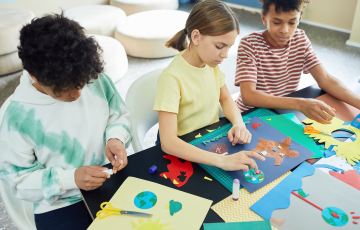Caring for your child’s health includes physical and emotional development and nurturing.
Here, we have focused on some specific areas of physical development that require special attention.
- regular checkups with your doctor or public health nurse help ensure your child’s hearing, vision, and speech are developing properly
- encourage the healthy development of your toddler’s brain through nurturing, movement, exploration and play
- now that your toddler’s teeth have begun to come in, you need to brush them daily and schedule dental appointments
- provide your toddler with lots of safe places for big movement activities and age-appropriate toys for developing fine motor skills
Brain
Your toddler’s brain is still developing and will continue to grow rapidly until she reaches school age.
You can influence the healthy development of her brain through nurturing actions, lots of play and exploration, and reading to her as often as you can.
Remember: Never shake your child – this can cause serious, irreversible brain damage.
Principles of Brain Development
- the outside world shapes the brain’s wiring
- the outside world is experienced through the senses - seeing, hearing, smelling, touching, and tasting - enabling the brain to create or modify connections
- the brain operates on a “use it or lose it” principle
- relationships with other people early in life are the major source of development of the emotional and social parts of the brain
(Source: Canadian Institute of Child Health)
Hearing
Hearing is very important to a child’s speech development and learning. Early identification of hearing difficulties is very important. See your doctor or public health nurse if you suspect your child may be having problems hearing.
Protect your child’s hearing
- make regular visits to your doctor or public health nurse
- observe your child’s ability to speak and respond to sounds in a variety of atmospheres
- seek prompt medical care for any ear infections or problems or childhood illnesses
- keep your child away from excessive noise
Encourage speech development
- talk and listen to your toddler
- singing and listening to music helps your child improve and refine their hearing
- read to your child as often as possible
Motor Skills
Toddler’s can usually roll over and sit up, and by one year old they are learning more large motor skills like crawling, walking, and running. By the time your child is three years old, they will have completely mastered walking, running, jumping, clapping, and many other motor skills. There are many things you can do to foster these new developments.
- play together - your child learns to move through games and exploration
- Provide age-appropriate toys that encourage movement
- balls, blocks, push and pull toys and sandboxes are all fun ways to help your toddler develop motor skills
- praise your toddler with words and actions when she attempts something new or achieves a milestone in physical development
- nurturing actions like hugs and kisses are very important to the physical development of your child
- be careful not to push your child into developing “early.”
- children can be hurt by over-exerting their under-developed muscles and spine
Teeth
Though baby teeth are eventually replaced by adult teeth, they are still very important. Early dental care ensures the health of your toddler’s gums and teeth, and proper development of her jaw and speech.
- baby teeth should be brushed twice every day with toothpaste
- gradually increase toothpaste from a smear to a pea-sized amount as you child gets more teeth
- your child’s first teeth help her to begin chewing solid foods, play a role in learning to speak and help jaw development
- limit the sweet or sticky foods your child eats and save them for mealtimes
- offer water instead of fruit juices and other sweet drinks between meals
- lift the lip regularly to check for early signs of decay behind and in front of the upper front teeth
- signs of tooth decay include white or brown spots along the gum line
- begin scheduling regular checkups with a dentist six months after your child’s first teeth appear
Vision
By six months, toddlers are usually able to focus both eyes on an object. They can now see things that are both very close and far away from them. As well, they will begin to develop hand-eye coordination.
- encourage healthy vision development by giving your toddler space to move and explore as they learn how to coordinate vision with body movements
- protect your child’s eyes by keeping sharp objects like scissors or lollipop sticks, and even sharp toys, out of reach
- be selective about the amount of television you allow your toddler to watch and ensure he sits at least eight to ten feet away
- children who cannot speak can still have eye examinations
- you should plan to have your child’s vision tested before she is three years old, or earlier if you are concerned she may be having problems seeing



